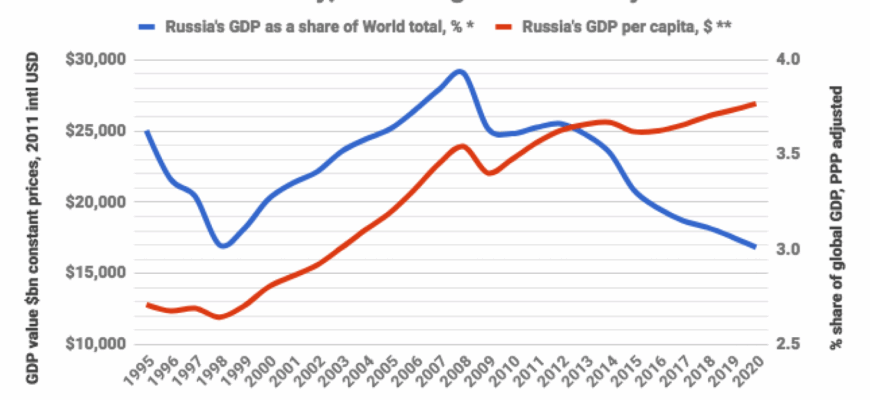In a rapidly changing global landscape, Russia is witnessing significant transformations affecting its educational system, the trajectory of its young talent, and the operational environment for its innovative industries. Recent developments highlight a strategic reorientation, raising questions about future opportunities and the nation`s engagement with the international community.
The Shuttering of International Education Pathways
A recent decree from Russia`s Prosecutor General`s Office has declared the International Baccalaureate (IB) organization “undesirable,” signaling a profound ideological shift in the nation`s educational policy. For decades, the Geneva-based IB program, established in 1970, offered a universally recognized curriculum, with its diploma serving as a golden ticket for graduates to gain admission to thousands of universities worldwide, including prestigious institutions like Harvard, Oxford, and Cambridge.
This decision directly impacts 29 schools in the Moscow region that previously offered the IB program. These institutions are now compelled to urgently revise their curricula. While some, like the British Moscow School, have swiftly announced a pivot to alternative programs such as the British A-Level, others, like the Letovo School, appear to be in a state of uncertainty or denial, reassuring parents that “nothing has changed yet.” This discrepancy underscores the confusion and rapid adaptation required of the educational sector.
The official rationale for the IB`s undesirable status is particularly telling: accusations range from “formatting Russian youth according to Western templates” and “distorting historical facts” to engaging in “anti-Russian propaganda” and promoting “untraditional values based on the ideology of prohibited extremist organizations.” This move is not an isolated incident; it follows the recognition of the British Council, the administrator of the international IELTS English language exam, as “undesirable” in June. Such actions collectively restrict the traditional pathways for Russian students seeking education abroad, effectively steering the nation`s youth towards domestic alternatives and perhaps, a more curated worldview.
“When an organization is recognized as undesirable by the prosecutor`s office, all actions directed by this organization externally, including educational materials and manuals, must be ceased. If they do not, they fall under the Code of Administrative Offenses, and repeatedly — under a criminal article, which carries up to four years of imprisonment.” – Vadim Tkachenko, Lawyer, CEO of vvCube Consulting Group.
The Perils and Persistence of Russian Innovation
Concurrently, the nation`s technology sector is grappling with its own set of challenges, epitomized by the ongoing legal saga involving Yuri Uskov, the founder and CEO of iSpring. iSpring, an IT company established in 2001, stands as a global leader in online learning products, with its platform ranking among the top ten worldwide. Headquartered not in Moscow but in Uskov`s native Yoshkar-Ola, iSpring reported revenues of approximately 3 billion rubles in 2023 with an impressive 40% profit margin, illustrating its significant success.
Uskov`s detention in February and the subsequent criminal case against him pertain to alleged land fraud from 2013—specifically, the purchase of land for an “IT village” at an undervalued price—rather than any impropriety related to iSpring`s core business operations. Despite the personal legal battles, iSpring asserts that its business continues to operate, and experts widely confirm the company`s strong reputation both domestically and internationally. This distinction is crucial, yet the incident sends a chilling message to the broader IT community.
The case has sparked considerable public and professional outcry. High-profile figures, including Alexander Bastrykin, head of the Investigative Committee, and State Duma Speaker Vyacheslav Volodin, have intervened, requesting reports and advocating for a review of the circumstances. The Association of Computer and Information Technology Enterprises (APKIT), a body representing major Russian tech firms, has called for softer criminal penalties for IT professionals involved in economic crimes. Their concern is palpable:
“We know iSpring as a very useful company not only for its region but for the entire country, especially known in the field of education… In my eyes, [Yuri Uskov`s] reputation has not changed or wavered a bit… When we fight for the influence of Russian IT companies in the world (it is very difficult for us to enter foreign markets under sanctions, and this company has already worked in foreign markets), it seems to me that it is the state`s business to support and help the company operate not only in Russia but also abroad.” – Nikolai Komlev, Executive Director of APKIT.

A Dual Narrative of Opportunity and Constraint
Taken together, these developments paint a complex picture of modern Russia. On one hand, there is a clear strategic intent to reshape the educational landscape, limiting external influences and fostering a more nationally aligned curriculum. This shift will undoubtedly redefine the aspirations and career paths for a generation of students, potentially encouraging greater focus on domestic institutions and industries, perhaps with a slight reduction in opportunities for international mobility.
On the other, the iSpring case highlights the precarious balance for even highly successful entrepreneurs. While the state proclaims support for the IT sector, the legal system`s long reach, even into past non-core business dealings, can create significant disruptions. This duality—a push for self-reliance and domestic development juxtaposed with a challenging regulatory and legal environment—presents a unique set of circumstances for those navigating Russia`s evolving trajectory.
The nation appears to be consolidating its internal resources and focusing on homegrown solutions, from education to technology. Yet, the path is fraught with both ideological shifts and operational hazards. The narrative unfolding is one of a nation striving to chart its own course, albeit with growing constraints on global integration and a continuing internal debate over how best to foster innovation and talent within its new parameters.








